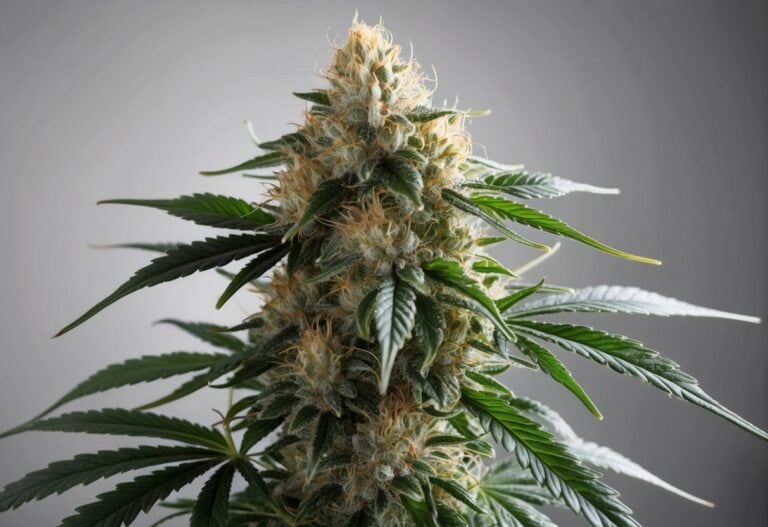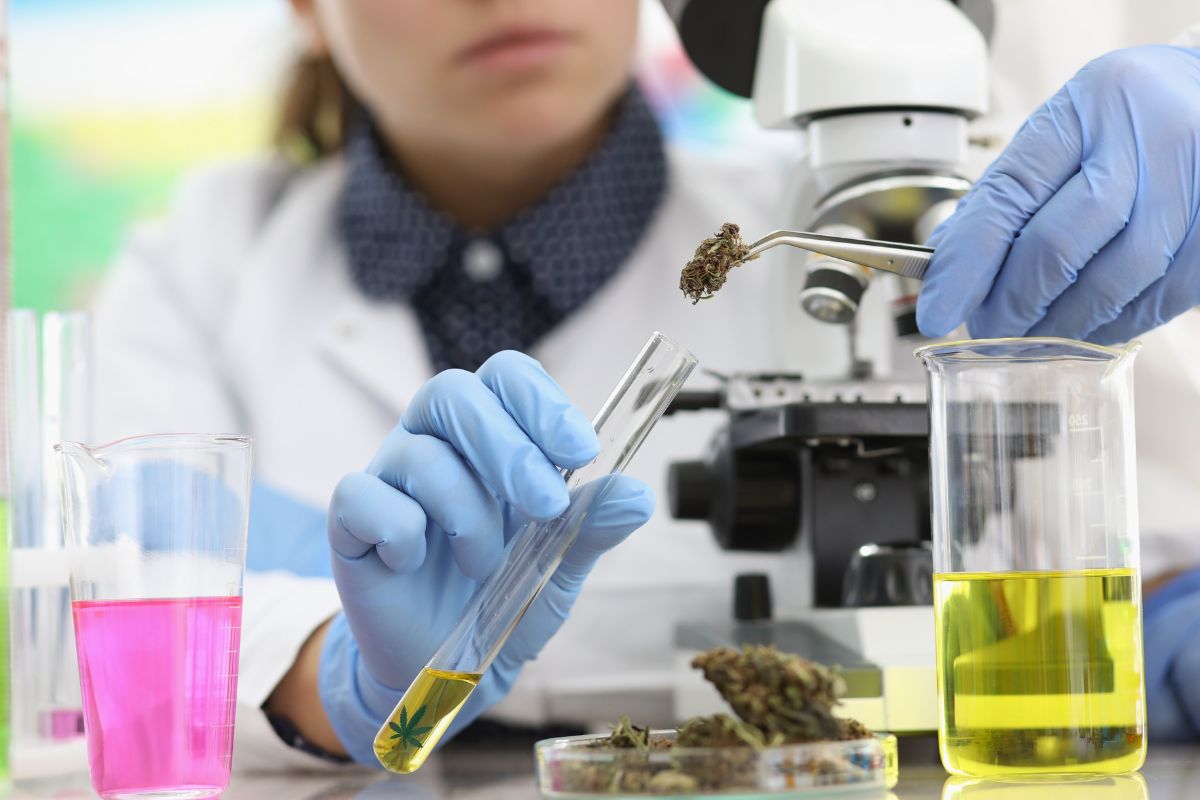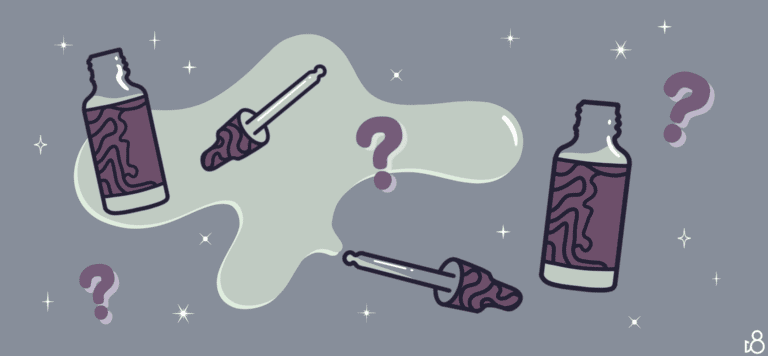How to Pass a Drug Test with Delta-8 in Your System: Expert Advice for Success
Drug tests are everywhere these days, so if you’re into delta-8 THC, it’s smart to understand how it might mess with your test scores and get ahead of the game. This kinder cousin of the infamous delta-9 THC, found in cannabis’s lush leaves, can surprise you with a chill buzz and some awesome health benefits. But heads up—delta-8 THC could still trip you up on a drug test if you’re not careful.
Understanding the differences between delta-8 THC and delta-9 THC, as well as how various drug tests detect them, will help you plan and prepare for an upcoming drug test. Different factors can affect how delta-8 THC is metabolized in your body, including genetics, metabolism rate, and your usage habits. By being informed and taking necessary precautions, you can navigate the drug testing process confidently and successfully.
Key Takeaways
- Delta-8 THC and delta-9 THC have similarities, so awareness is essential when facing drug tests.
- Drug tests may detect delta-8 THC in your system, influenced by factors such as metabolism and usage habits.
- Proper planning and understanding of drug tests can help pass them, even with delta-8 THC in your system.
Understanding Delta-8 THC
Delta-8 THC is a cannabinoid found in the cannabis plant, and it is considered a minor compound due to its low concentration levels compared to the more well-known cannabinoids like Delta-9 THC and CBD. Despite its lower occurrence, Delta-8 THC has gained attention for its unique psychoactive effects and potential therapeutic benefits.
The chemical structure of Delta-8 THC is similar to that of Delta-9 THC, its more prevalent counterpart, with a few key differences. The most significant difference between the two compounds is the placement of a double bond in their chemical structure. Delta-8 has the double bond on the eighth carbon chain, while Delta-9 THC has it on the ninth. This small change affects how each compound interacts with the body’s endocannabinoid system, resulting in different effects.
While Delta-8 THC is psychoactive, it typically induces milder effects than Delta-9 THC. Users often report experiencing a clear-headed high without the anxiety or paranoia sometimes associated with using cannabis containing higher concentrations of Delta-9 THC. This makes Delta-8 THC potentially more attractive to those looking for the therapeutic effects of cannabinoids without the intense psychoactive experience.
Like other cannabinoids, Delta-8 THC interacts with the body’s endocannabinoid system, primarily binding to the CB1 receptors in the brain and central nervous system. However, it has a lower binding affinity than Delta-9 THC, contributing to its milder effects. Some studies suggest that Delta-8 THC may have potential benefits, such as pain relief, anti-nausea, and neuroprotective properties, but more research is needed to confirm these findings.
When considering drug tests, it’s important to note that most standard tests screen for the presence of THC metabolites, not specifically Delta-8 or Delta-9 THC. Because of the structural similarities, Delta-8 THC may still trigger a positive result on these tests, even if the user has only consumed Delta-8 products. Therefore, it is essential to be aware of the potential implications of using Delta-8 THC, especially if you are subject to regular drug screening.

Drug Tests Explained
A drug test provides a way to detect the presence of specific substances in a person’s system. They help monitor substance use and ensure compliance with workplace or legal guidelines. There are various types of drug tests, including urine tests, blood tests, saliva tests, hair tests, and at-home tests.
- Urine tests are the most common type of drug test due to their low cost and ease of administration. They detect the presence of drug metabolites, which are chemical by-products created when the body processes the substance. Urine tests are typically used for detecting marijuana, opiates, amphetamines, and other drugs.
- Blood tests are more invasive than urine tests, but they can provide more accurate results for detecting recent substance use. Blood tests measure the actual concentration of a drug in a person’s bloodstream, making them ideal for detecting alcohol consumption or for situations where a quick result is necessary.
- Saliva tests are a less invasive option compared to blood tests and are becoming more popular due to their ease of collection and increased accuracy. Saliva tests can detect the presence of various drugs, including marijuana, amphetamines, and opiates.
- Hair tests offer a more long-term overview of a person’s drug use, as they can detect substances in a person’s hair follicles several months after usage. While they may not be useful for detecting recent drug use, hair tests can reveal patterns of chronic substance abuse.
- At-home tests provide a convenient way for individuals to self-monitor their substance use. These tests can be purchased over the counter and typically involve collecting a urine or saliva sample, which is then analyzed for the presence of specific drugs. However, at-home tests may have limited accuracy compared to laboratory-administered tests.
When it comes to Delta-8 THC, drug tests may produce a positive result, as these tests typically look for the presence of THC metabolites. While Delta-8 is a legal alternative to Delta-9 THC, they share some similar chemical structures and metabolites, leading to potential false-positive results.
In conclusion, understanding the different types of drug tests and how they work can help individuals navigate situations where drug testing is required. It is essential to be aware of the substances being tested for and to know the possible consequences of a positive test result in relation to the usage of Delta-8 THC.
Delta-8 THC vs Delta-9 THC
Delta-8 THC and Delta-9 THC are both cannabinoids found in the cannabis plant, but they have some significant differences in terms of effects and psychoactivity. Delta-9 THC is the primary psychoactive compound in cannabis, known for producing the euphoria, paranoia, and anxiety that many people associate with marijuana use. On the other hand, Delta-8 THC is a less potent, less abundant cannabinoid that has gained attention for its milder effects and potential therapeutic benefits.
The psychoactive effects of Delta-8 THC are generally considered to be less intense than those of Delta-9 THC. Users often report feelings of relaxation, clear-headedness, and mild euphoria without the sometimes overwhelming feelings of paranoia and anxiety commonly associated with Delta-9 THC. This reduced intensity makes Delta-8 THC an appealing option for those who want to experience the positive effects of cannabis without the potential negative side effects.
Regarding drug testing, it is essential to understand that most standard drug tests are designed to detect the presence of Delta-9 THC metabolites, not Delta-8 THC. As a result, a person using products containing only Delta-8 THC may still have a chance of passing a drug test, but the probability depends on the test’s sensitivity and the individual’s usage patterns. It’s crucial to exercise caution and make an informed decision when using any form of THC, particularly if drug testing is a concern.
In summary, Delta-8 THC differs from Delta-9 THC in several crucial aspects, including its psychoactive effects and potential concern when facing drug tests. With milder effects and reduced psychoactivity, Delta-8 THC offers a promising alternative to those seeking the benefits of cannabinoids without the intense high associated with Delta-9 THC.

Legal Status of Delta-8 THC
Delta-8 THC is a compound found in the cannabis plant, which has gained popularity for its psychoactive effects that are milder than those of delta-9 THC, its more well-known counterpart. The legal status of delta-8 THC varies at the federal and state levels in the United States, depending largely on its source and concentration in the final product.
The 2018 Farm Bill played a significant role in shaping the legal landscape for delta-8 THC. This federal law removed hemp, defined as cannabis containing no more than 0.3% delta-9 THC, from the Controlled Substances Act. Since delta-8 THC can be derived from hemp, this created a gray area in terms of its legality under federal law.
Although the 2018 Farm Bill legalized hemp, it did not explicitly mention delta-8 THC. As a result, different interpretations of the law exist within the industry and regulatory agencies. Some argue that products containing delta-8 THC derived from hemp are legal, while others contend that delta-8 THC is a controlled substance regardless of its source.
At the state level, legality varies widely, with some states adopting regulations that explicitly ban delta-8 THC or considering it a controlled substance. Other states allow it to be sold and consumed under certain conditions. Therefore, it is essential to research your state’s cannabis laws before using or selling delta-8 THC products to avoid legal issues.
It is important to note that the legal status of delta-8 THC is subject to change as more research becomes available, and authorities gain a deeper understanding of its effects and potential risks. In the meantime, individuals using or selling delta-8 THC products should follow all applicable local, state, and federal laws to ensure compliance.
Detection of Delta-8 in Different Drug Tests
Delta-8 THC, a less potent cannabinoid compared to Delta-9 THC, is gaining popularity due to its milder effects. However, concerns about its detection in drug tests are common, particularly for those facing workplace testing. Knowing how Delta-8 is detected in various drug tests can help you better understand the chances of it appearing in your test results.
| Urine Tests: The most common method of drug testing is through urine analysis. These tests typically detect THC metabolites such as THC-COOH. Delta-8 THC can be detected in urine, but since it is less potent than Delta-9 THC, the levels might be lower. It is possible to test positive for THC if your body converts enough Delta-8 into detectable THC metabolites (source). |
| Blood Tests: Blood tests are less common, primarily used in specific situations such as accidents or legal cases. These tests measure the active THC levels in your bloodstream. Since Delta-8 and Delta-9 THC have different concentration profiles, it is likely that Delta-8 detection in blood tests would be less probable than Delta-9. |
| Saliva Tests: Saliva tests are typically used for random drug testing or roadside tests by law enforcement. These tests detect THC and its metabolites, similar to urine tests. Although there is limited information on Delta-8 detection in saliva tests, it is possible that it could be detected if the test is sensitive enough to identify lower levels of THC metabolites. |
| Hair Follicle Tests: Hair follicle tests are less common and usually used when a longer detection window is needed. These tests are capable of detecting THC metabolites in your hair for up to 90 days, depending on hair growth rates. The detection of Delta-8 in hair follicle tests is not well studied; however, considering the common detection of THC metabolites, it is plausible that Delta-8 could be detected in this manner. |
It’s important to remember that each drug test has a specific detection window and sensitivity level. Factors such as dosage, frequency of use, and individual metabolism can influence how long Delta-8 stays in your system. Always approach drug tests with caution, especially if you have recently consumed Delta-8 THC products.
How to Pass a Drug Test
Delta-8 THC, while less potent than Delta-9 THC, can still be detected in drug tests and may result in a positive test depending on the amount consumed and the individual’s metabolism. If you have Delta-8 in your system and want to pass a drug test, consider incorporating the following strategies into your routine.
Hydration
Proper water intake is essential to diluting the concentrations of drug metabolites in your system. Drinking ample water daily helps flush out toxins and maintain your overall health. However, be cautious not to overhydrate, as excessively diluting your urine sample might arouse suspicion, leading to a retest.
Exercise and Cardio
Incorporating exercise and cardio activities into your lifestyle can aid in the detoxification process as THC is stored in fat cells. By burning fat through regular physical activity, you potentially decrease the amount of THC metabolites in your body. But it’s essential to avoid intense exercising too close to the test date, as it might temporarily increase metabolite levels.

Detox Methods
Various detox products claim to help eliminate drug metabolites from your system. These products range from herbal supplements, cleansing teas, to specialized drinks. While some users have reported success with detox products, they provide no guarantee—always research the product’s legitimacy and consider potential side effects before using it.
Diet and Lifestyle Modifications
Maintaining a healthy diet, including high-fiber foods, fruits, and vegetables, can aid in expelling drug metabolites from your body. Avoid fatty, sugary, and processed foods that can hinder the detoxification process. Additionally, getting enough sleep and managing stress levels are essential aspects for general wellbeing and efficiency of your body’s natural detox mechanisms.
While employing these strategies can help minimize the presence of Delta-8 THC in your system, it’s important to remember that individual results might vary. Factors like genetics, metabolism, frequency of use, and the amount consumed can influence the outcome of a drug test. Stay informed and make responsible choices to improve your chances of passing a drug test under these circumstances.
Factors Affecting Delta-8 Metabolism
Metabolism of Delta-8 THC varies depending on several factors. Understanding how these factors influence the metabolizing process can help you navigate the complexities of passing a drug test with Delta-8 in your system.
| Individual Differences: Each person’s body is different, and therefore, their metabolism of Delta-8 will also vary. Factors such as age, gender, and overall health can influence how quickly Delta-8 is processed and eliminated from the body. |
| Body Weight and Fat Cells: Delta-8 THC, like other cannabinoids, is lipophilic, meaning it binds to fat cells. Individuals with a higher body fat percentage may store Delta-8 longer than those with lower body fat. This can result in a longer duration of detectable metabolites in the system, especially in individuals who frequently consume Delta-8 products. |
| Metabolism Rate: A person’s metabolism rate plays a significant role in eliminating Delta-8 THC from the body. A faster metabolism helps process the cannabinoids quicker, reducing the likelihood of failing a drug test. Factors such as exercise, diet, and genetic predispositions can affect a person’s metabolism rate. |
| Duration and Frequency of Use: How long and how often you consume Delta-8 can impact its metabolism in your body. Those who use Delta-8 products more frequently or for an extended period may have a higher concentration of metabolites in their system, which could take longer to eliminate. |
When considering Delta-8 THC and drug testing, it’s essential to be aware of the factors that can affect the metabolism process. By understanding these factors, you can better prepare for a drug test involving Delta-8 THC. While it’s not possible to predict the exact outcome of each individual’s situation, being knowledgeable about the factors affecting Delta-8 THC metabolism can help inform your decisions and navigate potential drug testing challenges.
Delta-8 THC Benefits and Usage
Delta-8 THC, a lesser-known compound found in both marijuana and hemp plants, has gained popularity in recent years due to its potential therapeutic benefits and milder psychoactive effects compared to Delta-9 THC. Despite being distinct from CBD (cannabidiol), Delta-8 THC seems to offer similar advantages in terms of providing relief from various conditions without causing significant intoxication.
One of the primary benefits of Delta-8 THC is its potential to alleviate pain and inflammation. As a result, it has become an attractive option for those seeking a natural alternative to traditional painkillers. Its anti-inflammatory properties may also prove beneficial for individuals suffering from chronic conditions, such as arthritis.
Anxiety is another common issue that Delta-8 THC has shown promise in addressing. Users have reported a sense of relaxation and reduced panic attacks after consuming products containing the compound. This suggests that Delta-8 THC may be a possible treatment option for anxiety disorders and depression.
Although research on the medicinal benefits of Delta-8 THC is still in its early stages, the compound has managed to garner interest among the medical community and consumers alike. It’s essential to note that not everyone experiences the same effects, so individual responses to Delta-8 THC may vary.
To enjoy the potential benefits of Delta-8 THC, various methods of consumption are available, depending on personal preferences and requirements. Edibles, tinctures, and vaporizers are just a few options to choose from. However, it’s crucial to be mindful of dosages and consult with a healthcare professional before incorporating Delta-8 THC into a treatment plan, especially for those new to the compound or dealing with specific medical conditions. Remember, it’s always better to start with a lower dose and gradually increase it to find the optimal level for your needs.
As Delta-8 THC gains more recognition and scientific understanding, its potential use as a medicinal and therapeutic compound will likely continue to expand. In the meantime, individuals interested in exploring the possible benefits of Delta-8 THC should exercise caution, educate themselves on its effects, and consult with healthcare professionals to ensure safe and responsible usage.
Precautions and Considerations
When it comes to passing a drug test with delta-8 THC in your system, there are several precautions and considerations to keep in mind. First and foremost, it is important to prioritize safety and purity when using delta-8 products. One study demonstrated that delta-8 THC could affect intraocular pressure in rabbits, indicating the need to exercise caution when using this cannabinoid.
It’s essential to ensure that the delta-8 products you use are free from contaminants like heavy metals and pesticides. Many manufacturers use third-party testing to confirm the product’s purity. Before purchasing or using delta-8 THC, always verify these lab test results to ensure a clean and safe product.
Another aspect to consider is the potential for a false positive result on a drug test. Some drug tests cannot distinguish between delta-8 THC and the more commonly tested delta-9 THC, increasing the chances of a false positive result. In such cases, it’s crucial to be honest with your employer about any legal delta-8 THC usage to avoid confusion or misunderstandings.
If you’re using delta-8 THC for recreational purposes, it’s crucial to be aware of the legal status of the substance in your region. Since the 2018 Hemp Farm Bill was passed, delta-8 THC has fallen into a legal gray area in some states. Make sure to research the current laws in your location to avoid any legal repercussions.
In conclusion, when attempting to pass a drug test with delta-8 THC in your system, it’s important to take safety precautions by ensuring product purity and being aware of potential false positive test results. Be honest with your employer, and keep yourself informed about the legal status of delta-8 THC in your area. Doing so will help you navigate this situation confidently and responsibly.
Frequently Asked Questions
What is the fastest way to remove delta-8 from your system?
There is no quick fix for removing delta-8 THC from your system. The best approach is to stay well-hydrated, exercise, consume a healthy diet, and get enough sleep. These factors will contribute to your body’s natural detoxification processes. It is essential to keep in mind these methods will not guarantee the elimination of delta-8 THC from your system before a drug test.
How long is delta-8 detectable in urine?
Delta-8 THC detection time in urine can vary based on factors such as frequency of use, body weight, metabolism, and the sensitivity of the drug test. It’s difficult to determine an exact timeline, but some sources suggest that it may follow a similar pattern to delta-9 THC, which can be detectable for up to 30 days in heavy users.
What methods can be used to clear delta-8 from urine?
There are no specific methods to clear delta-8 THC from urine as it relies on your body’s natural detoxification process. Maintaining a healthy lifestyle, drinking water, exercising, and consuming a balanced diet may help your body process delta-8 THC more efficiently. However, these methods are not guaranteed to work for everyone or provide quick results.
What is the appropriate duration to stop using delta-8 before a drug test?
It is best to stop using delta-8 THC as far in advance as possible before a drug test. As mentioned earlier, it can be similar to delta-9 THC and could potentially be detected in a drug test. The appropriate duration to abstain may vary depending on factors like metabolism and frequency of use, but it’s best to err on the side of caution.
Can delta-8 THC cause a positive result on a drug test?
Yes, delta-8 THC has the potential to cause a positive result on a drug test. Some drug tests may not specifically target delta-8 THC, but due to its similarities to delta-9 THC, it could still trigger a positive result.
Are there specific detox remedies for delta-8 THC?
There are no specific detox remedies for delta-8 THC. The best approach to clearing your system is to maintain a healthy lifestyle, stay hydrated, exercise, and consume a balanced diet. Keep in mind that these methods will not guarantee a negative drug test result, especially within a short period.
Resources:










